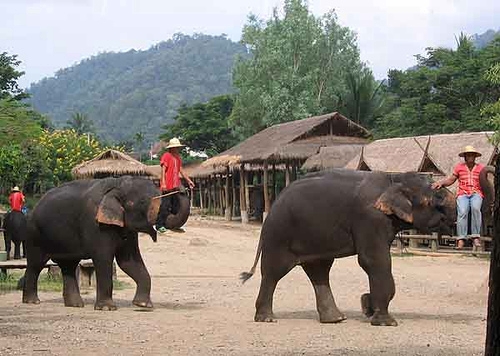
Thailand one of world’s worst violators of ivory trade laws according to World Wildlife Fund
If you have spent much time in Thailand, you probably think the same as most westerners – many animals are just not treated very well in Thailand. So, to see a new report out by the World Wildlife Fund (WWF) saying Thailand, along with Vietnam and China, is one of the top three worst violators of ivory trade laws is probably not that surprising.
The WWF said the three countries aid and abet a global black market that is causing the deaths of tens of thousands of elephants and rhinoceros world wide.
What is surprising is the elephant is Thailand’s national animal. But, when you see how elephants are treated in Thailand, forced to carry people for hours on end on elephant treks, to work in tourist shows, or dragged through Bangkok’s incredibly polluted streets to the tourist areas where their mahoots make them beg for money, you might have a hard time wondering, if the elephant wasn’t Thailand’s national animal, how poorly it would be treated then.
The WWF now says the poaching of African elephants is at crisis levels and that much of the ivory hacked off the elephant as it lies dying is then sent to Thailand, Vietnam and China for use as decorative items.
Rhinoceros horns are also cut off and used by Asians as a “cure” for cancer. (They don’t cure cancer, but that’s what happens when you are poorly educated — you believe idiocy like this).
They also blame Thailand for making the world illegal trade of ivory worse. This because of a peculiar Thai law that allows the trade of ivory that has been cut from “domesticated elephants”. The WWF says, because of this law, illegal African ivory is being sold all over Thailand as there is no possible way of telling if it is from a Thai domesticated elephant or a wild African elephant.
The WWF, however, did give high scores to both India and Nepal, who they say have made huge inroads into stopping the illegal trade of tigers, rhinoceros, and elephants.



